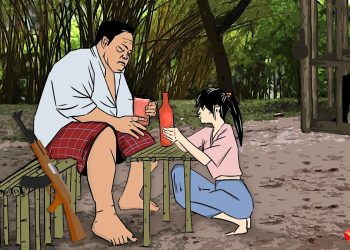The United Nations Secretary-General’s special envoy for Myanmar says the junta has not responded to her request for talks as it tries to consolidate its rule.
Christine Schraner Burgener told the media on Tuesday that on July 16 she had “a long conversation” with the deputy junta chief, Vice-Senior General Soe Win, about Myanmar’s crisis.
The special envoy highlighted concerns over the persecution of civilians, freedom of speech and the media and called for the release of all political detainees.
“Some of the ideas I gave him to decide the dialogue idea were heard, like to make a statement that lawsuits against health workers will be withdrawn. On the dialogue, I didn’t receive an answer: not a positive, or not a negative,” she said.
Burgener said the details of the conversation would remain confidential to keep the channel open.
The Swiss diplomat said coup leader Senior General Min Aung Hlaing “appears determined to solidify his grip on power with the latest caretaker government announcement; also with the formal annulment of the election results from last year and declaration of the commander-in-chief to be prime minister of the country”.
She expressed fear that the National League for Democracy “could be disbanded. This is an attempt to promote legitimacy against lack of international action taken,” she said. “The UN does not recognize governments, so it’s up to the member states.”
Both Myanmar’s junta and the civilian National Unity Government (NUG) have been trying to achieve international legitimacy. Twenty-one of Myanmar’s diplomats, including ambassador to the UN U Kyaw Moe Tun, have publicly denounced the regime and taken part in the civil disobedience movement.
U Kyaw Moe Tun has been threatened and the US Department of Justice on Aug. 6 reportedly uncovered a plot against him
She said as long as UN member states do not decide otherwise, U Kyaw Moe Tun will remain Myanmar’s UN ambassador and detained State Counselor Daw Aung San Suu Kyi and President U Win Myint will be seen as its leaders.
Myanmar’s people continue to reject military rule and demand the establishment of democracy.
Burgener has been holding talks with the military, ethnic armed organizations and other groups, including the NUG.
For two months she has been promoting the idea of talks around four “clusters”, covering the COVID-19 response, humanitarian assistance, issues related to the Rohingya community and the causes of the crisis. This would include discussions around the federal system, the constitution, establishing a federal army and legal and electoral reforms.
“With my discussion with all stakeholders, I realize that no side will give up arms or be ready to make any compromises,” said Burgener. “The NUG was interested in the idea but clearly would have pre-conditions to start such a dialogue.”
She has also proposed establishing an international observer group on Myanmar, including representatives from China, India, Japan, Thailand, the US, UK, Norway, Switzerland, the European Union, regional bloc ASEAN and UN.
She hoped the recent appointment of an ASEAN special envoy on Myanmar would help talks to take place, otherwise “it goes more and more in the direction of a civil war”.
The regime has not allowed her to visit the country since the February coup.
Burgener said: “I think still the visit of myself is considered from the army as not ready. In my view, it is not because they don’t want to talk anymore with me, because we are still in contact. I just had an exchange last Sunday. But I assume that it is because people on the ground would be very encouraged with my presence in the country and that’s probably something the army does not want to see.”
You may also like these stories:
Myanmar Reacts as Resistance Fighters Make Deadly Jump to Avoid Raiding Troops
China Starts Calling Myanmar Junta “Government”
Myanmar Junta Removes Suu Kyi’s Belongings From State-owned Residence

















